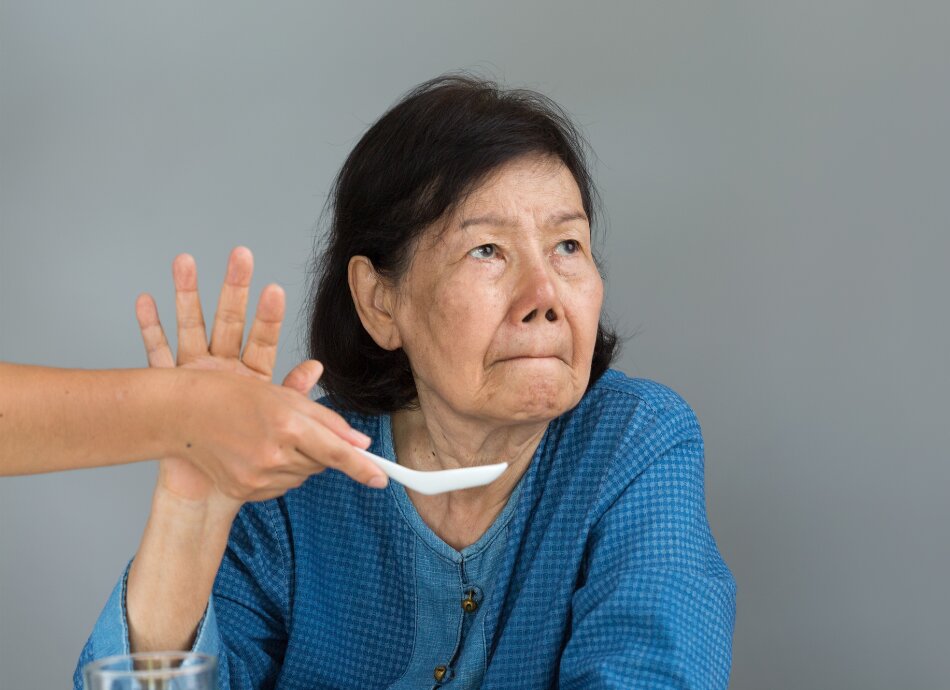You can now add Healthify as a preferred source on Google. Click here to see us when you search Google.
Appetite loss in palliative care
Key points
- People with appetite loss can feel full after eating a small amount of food, not have the feeling of hunger, be uninterested in food or have changes in the taste and smell of food.
- Loss of appetite is common in people living with a terminal illness.
- It often worries carers the most, as not eating can cause complications such as weight and muscle loss.
- Treatment of appetite loss often depends on the cause, and may include seeing a dietitian and taking medication.
- There are things you can do to help improve your appetite, but don't dwell on it as this can stress you out and make eating more difficult.

Appetite loss in people living with a terminal illness or advanced disease can have a lot of causes. It can be caused by other symptoms of the illness or side effects of medicines or treatment. These include:
- metabolic changes in your body due to advanced disease
- pain
- cancer or disease treatment such as chemotherapy or radiotherapy
- side effects of drugs or medicines
- nausea and vomiting
- weakness and fatigue
- constipation
- changes in taste and smell
- difficulty swallowing
- mouth problems such as dry mouth or thrush
- anxiety, depression or stress.
Symptoms of loss of appetite can include:
- feeling full after eating a small amount of food
- not having the feeling of hunger
- not having an interest in food
- having changes in the taste and smell of food.
These symptoms are different from nausea, which means feeling sick and having the urge to vomit but may or may not include the desire to eat. Read more about nausea and vomiting in palliative care.
Your doctor will assess your condition before prescribing any treatment. If you have a medical condition or any obvious causes of appetite loss are found, treatment will focus on the condition or the cause.
Non-medicine treatment
Your doctor may refer you to a dietitian to help you plan your meals and manage your nutrition. You may also be referred to a speech and language therapist if you have swallowing problems.
Medicines
There are a few medicines that can be used to treat appetite loss. These medicines work differently from each other and are prescribed according to what has caused your appetite loss. Common medicines that can be prescribed include:
- metoclopramide
- domperidone
- dexamethasone
- megestrol acetate
- antidepressants.
Although you may not feel like eating, you need to eat well and get the nutrients your body needs to help you feel better, get more energy and cope better with your illness. There are several things you can do to help manage appetite loss. These include the following:
- Eat or drink small amounts but frequent meals.
- Eat meals at a time when your appetite is best – it doesn't have to be regular meal times.
- Avoid eating in an environment with strong smells.
- Try eating new foods each time as your tastes may have changed.
- Try eating with family and friends and enjoy the time eating together.
- Eat what you like.
- Eat soft or easily digested food such as soup or porridge.
- Try taking mint or peppermint drops to make you feel fresh.
- Rinse your mouth before and after food.
- If hot food with a strong smell makes you feel sick, try eating cold food or food at room temperature.
- Some alcohol is possible if it stimulates your appetite. However, check with your doctor first as alcohol can interact with some medicines.
- Don't think about and focus on eating all the time.
- Gentle exercise before meals can help stimulate appetite.
Apps reviewed by Healthify
You may find it useful to look at some Long-term condition apps, Nutrition, exercise and weight management apps, and Pain management apps.
People having loss of appetite can feel distressed and have reduced quality of life. Talk through your feelings with your family and friends to get the support you need.
Below are some support services and information for people affected by cancer and their family/whānau:
Emotions and cancer(external link) Cancer Society of NZ
How we can help(external link) Cancer Society of NZ
NZ cancer services – find a hospital/service near you(external link) Healthpoint, NZ
More cancer support groups
Loss of appetite(external link) Cancer Council Australia
Appetite loss(external link) Cancer.Net
Managing the symptoms of cancer(external link) Macmillan Cancer Support, UK
References
- Cachexia and anorexia in palliative care(external link) Auckland HealthPathways, NZ
- The palliative care handbook(external link) Hospice NZ
- Anorexia/cachexia(external link) Scottish Palliative Care Guidelines, UK
See our page Palliative care for healthcare providers
Credits: Healthify editorial team. Healthify is brought to you by Health Navigator Charitable Trust.
Reviewed by: Dr Karen Chung
Last reviewed:
Page last updated:





